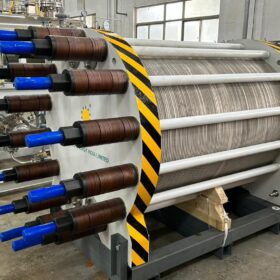TATA Power Delhi Distribution Limited (Tata Power-DDL), which distributes electricity to a populace of over 7 million in Delhi, has signed an MoU with the Council on Energy, Environment and Water (CEEW) to evaluate and accelerate the integration of decentralized renewable energy into Delhi’s power grid.
The collaboration will include joint research on the impact of increased solar rooftop deployment on the quality of power supply, determining optimum rooftop solar photovoltaic share at the distribution transformer-level and techno-economic feasibility of agricultural solar micro-grids. The research findings will provide TATA Power-DDL with an implementable plan to meet a portion of its future power needs using solar and other Distributed Energy Resources (DER) technologies.
Further, TATA Power-DDL and CEEW will also assess the impact of air pollution on the life of power distribution assets and their operational performance. The assets will be evaluated on the basis of their maintenance and replacement history along with prospective measurement of air pollution in areas where degradation is likely to be higher.
Sanjay Banga, CEO, TATA Power-DDL, said, “At TATA Power-DDL, we have always been committed towards sustainable and clean energy. This collaboration with CEEW will strengthen the operational performance of our power network further and help overcome the existing challenges in rooftop deployment, DER technologies, demand response, energy efficiency and grid-level storage to meet the future power requirements.”
Dr Arunabha Ghosh, CEO, CEEW, said, “Delhi’s discoms have been at the forefront of bringing the clean energy transition closer to communities. This collaboration with TATA Power-DDL will help us accelerate the deployment of renewables into the grid while taking into account the associated challenges to ensure seamless integration with the existing power system. Solar rooftops and solar micro-grids, if designed well, could both emerge as affordable, reliable, and clean sources of power for residential and agricultural consumers in the coming years.”
The TATA Power-DDL and CEEW collaboration could also help achieve Delhi’s solar generation targets of 1 GW by 2020 and 2 GW by 2025, in accordance with the Delhi Electricity Regulatory Commission’s guidelines for implementation of the Group Net Metering and Virtual Net Metering framework.





